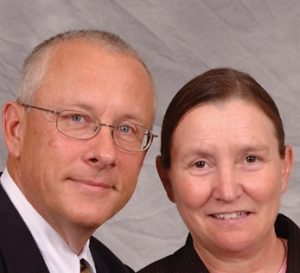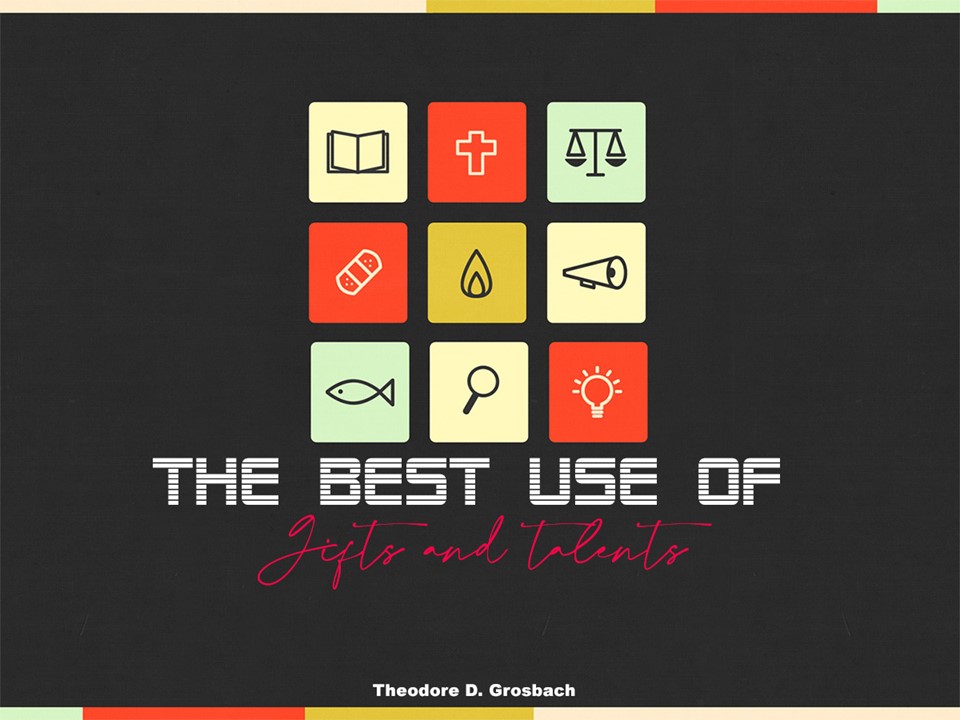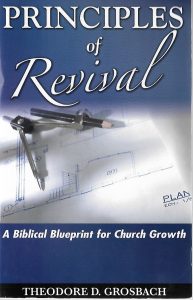
by: Theodore D. Grosbach
To View the Entire Article, Click Here
To Download the Entire Article, Outline, or PowerPoint, Click Here
But unto every one of us is given grace according to the measure of the gift of Christ (Ephesians 4:7)
Grace To All
David A. Womack, in his excellent book, Breaking The Stained-Glass Barrier (Harper & Row, New York, 1973), states on page 7 concerning Ephesus:
Paul established a permanently successful church that was to be the center of the Christian faith over much of the next two centuries. Even though the Apostle John was to warn the church against losing its first love, it would rekindle its flame and remain a burning candlestick for a very long time. In Ephesus would live the aged Apostle John, and from nearby Smyrna would go forth the second-century missionary Irenaeus to preach the gospel in Lyons, France. The seven churches of the Apocalypse would be only a few of the many churches scattered all through that end of Asia Minor, and the New Testament letters to the Ephesians, the Galatians, the Colossians, and probably those of I and II Timothy and Titus were directed to this general area. Paul’s biographer, Luke, said of the apostle’s ministry at Ephesus, “So mightily grew the word of God and prevailed” (Acts 19:20). Whatever Paul did at Ephesus needs to be repeated again throughout the whole twentieth-century world.
He then goes on to say on page 16:
The city of Ephesus was a center for commerce, learning, sports, and a particularly popular religion. Paul knew the importance of establishing a strong base at the very hive of Asian activity, so he carefully mapped out his strategy and initiated a well-devised plan.
It is no wonder then that we can find so many verses in the Book of Ephesians that focus on the equipping of the saints for their personal ministries. Paul describes how the body, which is one and operates by the power of one Spirit, functions perfectly in balance. He tells how each part contributes what it can and how that contribution helps in edifying the rest of the body. He says that the body is perfectly joined together and that it is built upon the strong foundation of Jesus, the apostles, and the writings of the prophets.
We began this chapter by quoting Ephesians 4:7. It is important to note the placement of this verse and see how it is sandwiched between Paul’s treatise on the unity of the Kingdom of God (one body, one Spirit, one hope of our calling, one Lord, one faith, one baptism, one God) and the passage concerning the church’s leaders being mindful to equip the saints for the work of the ministry. In other words, verse 7 becomes a pivotal passage of a pivotal letter written by the great apostle.
To begin to understand the verse, we need to start by re-thinking our definition of grace. Though commonly explained as “the unmerited favor of God,” the biblical use of the word goes a little further. The unmerited favor of God is always attached to a specific purpose. This is simply to say that what God blesses us with is there for a reason. Whether we call it a blessing or a curse, it’s there for a purpose in our lives. And this is how Paul starts off the verse: to each of us is given grace (some gift of God for an intended goal) in a certain amount (according to a measure.) How much is given? What is the measure? Paul tells us that it is given in proportion to the gift of Christ. How much did Jesus receive, and how much did Jesus give?
To View the Entire Article, Click Here
To Download the Entire Article, Outline, or PowerPoint, Click Here



